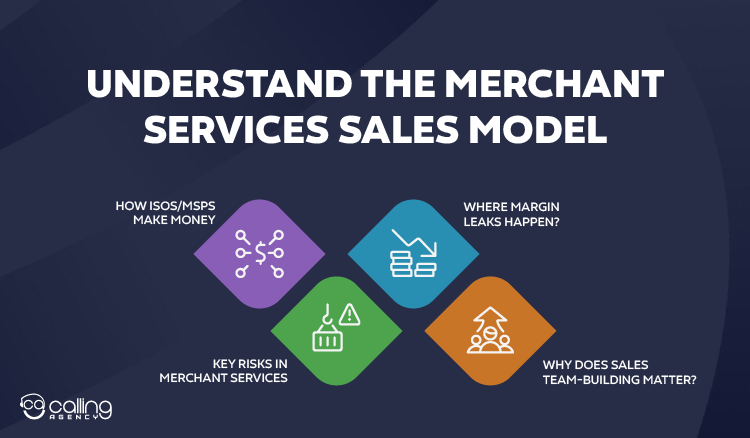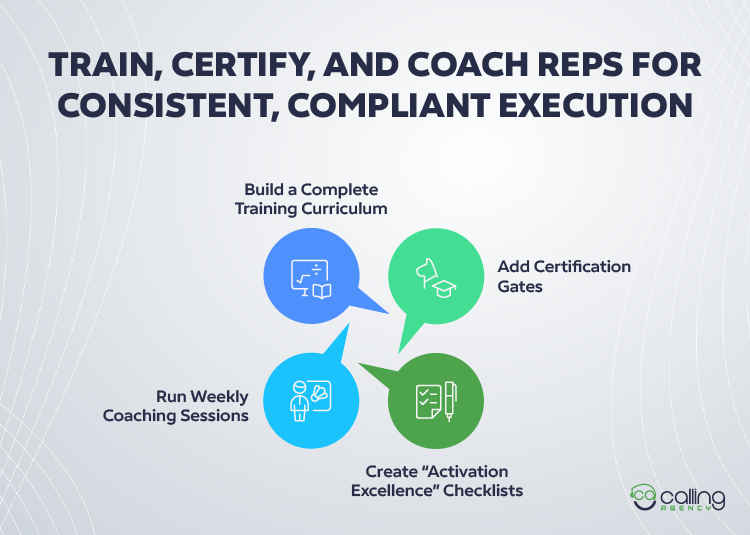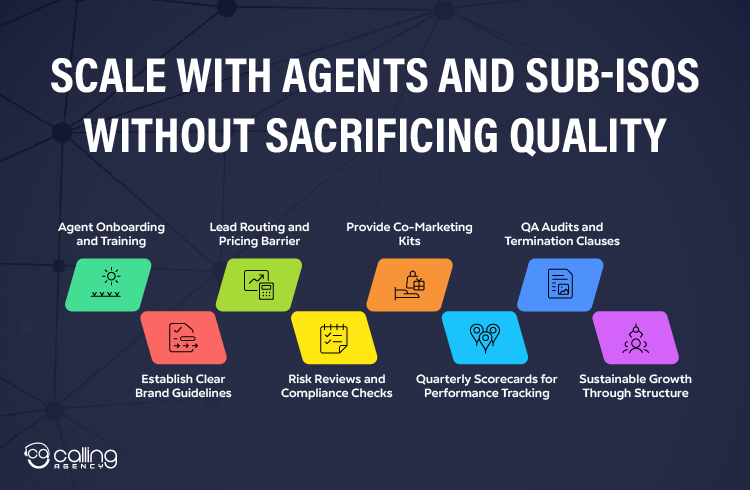To ensure the fastest growth of your payment business, you need a strong merchant service sales team. Random hiring agents will not give you better results. When building a team, you must have a clear sales model, the right team structure, and an accurate process.
No worries! You will learn in this blog everything from understanding how ISOs and MSPs make money with the right agents, grading and training agents and sub-ISOs, building a strong compensation plan, and more.
Understand the Merchant Services Sales Model
Merchant service providers are a subset of financial services focused on the needs of businesses.
So their sales model focuses on payments in, processing payment gateways, POS systems, sales solutions, etc.
Also, their sales processes can be customized to individual clients. Merchant service generally operates under the business model of ISOs (Independent Sales Organizations) and MSPs (Member Service Providers).

How ISOs/MSPs Make Money
ISOS and MSPs earn money by reselling payment processing services to merchants, which is what Independent Sales Organizations (ISOs) and Member Service Providers (MSPs) do. The revenue flows from three main sources:
- Interchange Fees – These would be the fees you cannot negotiate your way out of, and are set by the card networks (i.e., Visa or Mastercard). They are transferred from the seller to the bank of issue. ISOs/MSPs do not set interchange, but it is important for them to understand interchange in order to communicate costs more effectively with merchants.
- Assessments – Card networks also receive small fees, which they call assessments. Like interchanges, these costs are fixed for merchants.
- Markups – This is how ISOs and MSPs are able to make profits. They tack on a percentage or a flat fee over and above interchange and assessments. If set up correctly, markups are a consistent passive income.
Where Margin Leaks Happen?
If margins aren’t protected, even the best sales teams lose money. Common leaks include:
- High Buy Rates – If your ISO/MSP is paying too much to the processor, you are squeezed for profit.
- Too many Giveaways – Giving away free equipment or huge discounts might attract merchants, but you lose big in the long run.
- Weak price strategy – Over competitive rates combined with high margins end in low profits.
Key Risks in Merchant Services
Merchant services also bring risks that every sales team should understand, including:
- Chargebacks – Revenue loss due to customers disputing transactions. ISOs/MSPs are also at risk of too many chargebacks.
- Underwriting errors – If you fund risky merchants without checks in place, it can lead to losses.
- KYC/KYB Compliance – It is mandatory to respect the know your customer (KYC) rules and the know your business (KYB) code. Ignoring them will lead to fines and legal troubles.
- PCI Compliance (Payment Card Industry) – Merchants are required to be compliant with PCI standards in order to ensure secure transactions. Failure to comply unnecessarily risks the liability of both merchants and ISO/MSP.
Why does Sales Team-Building Matter?
A good merchant services sales team is not simply about closing deals, but selling with expertise and trust. Once agents know about interchange, assessments, markups, risks, and compliance, they can.
- Explain pricing clearly to merchants.
- Protect margins and price fairly.
- Capture risks by bringing the right merchants on board.
You want to be creating years-long residual income, not a one-time commission.
When you train your sales team on the merchant services model, they become confident sellers who hold onto clients over time.
Architect your Sales Organization and Ratios that Work
If you want to create a productive retail merchant services recruitment, you can’t just depend on selling skills. You need a well-defined structure where roles have meaning, and every process drives improvement.
There are well-thought-out sales organizations that sometimes face issues, such as merchant services leads getting lost, account managers burning out, and deals not working well.
That’s why establishing the right ratios and responsibilities is core to longevity.
Establish your Sales Team Core Positions
An effective merchant services sales company typically includes the following roles:
- SDR/BDR (Sales Development or Business Development Rep) – These reps concentrate on prospecting, cold outreach, and qualification of leads. They are to crack doors and pass along ready-to-buy prospects.
- AE (Account Executive) – AEs do more closing. They conduct product demos, handle objections, and close contracts with new merchants.
- AM/CS (Account Manager or Customer Success) – Merchants still need servicing even after closing. AMs foster trust, reduce churn, and open up new upsell opportunities.
- Sales Operations – This position makes sure the sales machine is well-organized, overseeing elements like CRM tools, reporting, and data-driven insights.
- Risk Liaison – Merchant services related to compliance, fraud checks, and underwriting. A risk liaison shortens the distance between sales and risk teams, facilitating secure approvals.
Ratios to Keep your Team Balanced
The proper proportions ensure that things don’t get overloaded and inefficient. Some proven structures include:
- 2 SDRs per 1 AE – This is how everyone always has a full pipeline while also focusing on having great quality conversations.
- 1 AM to every 100 active merchants – This ratio allows for AMs to provide hands-on support without being spread too thin.
- 1 Risk Liaison for every 300–400 merchants – A controllable volume helping risk checks be thorough without too much delay.
These ratios may change as your sales volume increases, but by establishing these clear benchmarks to start, you begin on the right path.
Specialization by Vertical and Territory
All merchants are created equal. The requirements are different for restaurants, e-commerce stores, and health care providers. By segmenting your sales reps by vertical, you enable them to speak to specific merchant pain points.
- Restaurants – POS integration, fast service, and offline payments.
- E-Commerce – Secure payment gateways, fraud prevention, and international payments.
- Healthcare – Adherence, subscription mode, and security of sensitive information.
Territory-based logic also matters. By assigning reps by geography or size of business, you can avoid overlap, confusion, and make sure prospects get customized service.
When you structure your sales team with clear roles, smart ratios, and obvious specialization, you’re designing it to measure to grow when the time comes.
A powerful merchant services sales team doesn’t just close more, it carries engaged merchant relationships on its back that drive sales year over year.
Hire for the Right Rep Profile and have a Predictable Recruiting Process
What are the steps to building a strong merchant services sales team? A good hire drives consistent revenue and builds long-term merchant relationships, while a bad one checks growth and raises churn. Which is why you need a clear rep profile, an organized recruiting process, and a strong ramp-up plan.
Create your Ideal Sales Rep Profile
The truth is that not all sales reps thrive in merchant services. The qualities of the best drop are often these:
- Payment Literacy – They know how payment processing works, which includes understanding transaction fees, chargebacks, POS systems, and gateways.
- Compliance mindset – As a heavily regulated industry, they need to be detail-oriented and able to follow rules related to risk and fraud.
- Outbound Grit – Cold calls and prospecting are par for the course. Reps require persistence, perseverance, and being comfortable with rejection.
- Vertical Knowledge – Their experience in bound industries such as restaurants, e-commerce, or healthcare enables them to reach a prospect, too.
Run a Predictable Hiring Pipeline
Instead of conducting quick hiring, have a weekly hiring pipeline. This adds discipline to the process and guarantees you’re bringing in consistently excellent reps.
- Week 1 – Totality candidates via job boards, LinkedIn, and referrals.
- Week 2 – Review resumes and conduct phone interviews.
- Week 3 – Run structured interviews with scorecards and conduct a test for paymatic knowledge, selling skills, and compliance.
- Week 4 – Last interviews, role plays, and offer stage.
Scorecards can be a mechanism to keep hiring impartially. For instance, score candidates on a 1–5 basis in categories such as communication skills, industry knowledge, and persistence. This guards against bias and helps make comparisons among candidates easier.
Create a 30/60/90 Ramp Plan
Once you’ve hired new reps, they require a clear path to success. A 30/60/90 day plan manages their expectations and gives them confidence.
- Day 1-30 – Product training, compliance, CRM tool training, and shadowing calls.
- Next 60 Days – Begin prospecting, booking meetings, and running small demos with the manager’s help.
- By 90 Days – Carry a mini quota, control their own pipeline, and close initial business.
Without a clear process, hiring leads to turnover and lost hours. But when you put the right profile in place, have scorecards and work with new reps executing a 30/60/90 plan, you achieve predictable success.
This process ensures your team of merchant services sales agents grows with competent, capable, and high-performing professionals.
Build a Compensation and Residual Plan that Drives Performance And Retention
Nothing keeps an ISO sales team as motivated as a solid compensation plan. The correct structure rewards performance, encourages long-term thinking, and discourages turnover.
The right structure, on the other hand, can lead to burnout, bad deals, or high turnover.
That’s why you need a compensation plan that combines base pay, accelerators, SPIFFs, and residuals while safeguarding your business against the first year of losses.
Base, Accelerators, Blend SPIFFs and Residuals
Submit a base of your plan that should be a blend of base salary and variable, performance-based rewards.
- Base Pay: Reinforces stability for reps to focus on good deals vs short-term desperation.
- Accelerated: Higher commission rates when reps are over quota, thus encouraging overachieving salespeople to work harder.
- SPIFFs (Special Performance Incentives) – Short-term bonuses for achieving specific goals such as selling into a new vertical or closing deals in less than 30 days.
- Residual Share – A share of transaction revenue or monthly merchant fees that incentivizes reps to grow an account (revenue-wise) over time.
This combination results in a balance where reps are paid fairly upfront while also remaining motivated to expand accounts over time.
New Logos and Quality Activation Costs Pay for Both
Specifically in merchant services, not all deals are created equal. One rep who signs up ten merchants that churn in three months isn’t as valuable as a rep who signs five that process for the next several years. To alleviate this, design compensation with both.
- New Logos (Acquisition) – Pay a unit upfront bonus for onboarding new merchants.
- Activation Quality – Apply and multiply based on volume processed or churn-adjusted metrics. For example, pay more if the merchant is connected to it for six months with consistent transaction volume.
- Protect Against Risk – Under state laws, clawback provisions may expose partners in a partnership to financial responsibility if they lose money as a result of a payment.
To protect your business, layer in the precautions –
- Clawbacks – If a merchant churns within 90 days, claw back part of the upfront bonus. This discourages risky signups.
- Risky Business Caps – Cap the commissions you pay to risky merchants until they establish a processing history of similar behavior.
These rules protect revenue without incentivizing reps to avoid new opportunities. An effective compensation and residual structure does more than compensate your reps.
It inspires a performance mentality, develops longer-term relationships with merchants, and drives retention across your sales team.
When reps are confident they’re equitably compensated for short-term wins and long-term growth, you’ll build a stronger, more sustainable merchant services business.
Operationalize a Multi-Channel Pipeline that Predictably Creates Activations
For building a strong merchant service provider sales team, it is necessary to follow a focused multi-channel pipeline. There are two different ways of creating a multi-channel outreach pipeline. Those are with the channels and referrals.
Using Channels for Reaching & Filtering Out
Choosing the effective channels for the merchant service agents’ finding out process is crucial. Here, the multi-channel approach works best for grabbing the right agents who have merchant service management skills.
Some of the common and work-efficient channels are –
- Outbound Listing (ICP) – The outbound listing is highly focused on ICP analysis. During ICP analysis, you must analyze factors like complex financial product selling skills, payment processing knowledge, POS system management, online gateways, POS, etc. Along with that, merchant reps’ proven working track records are also necessary. Focus on their previous accomplishment in sales targets and how many successful meetings they scheduled for their clients.
- Partner with VAR & ISV – Collaborating with the value-added resellers & independent software vendors can help you reach out to potential agents. They have a huge existing customer base and provide multiple types of merchant services. Here, you have to look for those VARS who have already run agent programs. Most of the time, they have structured programs for providing sub-sales agents for others.
- Agent Networks – Using agent networks that provide third-party digital payment-related solutions can give you contacts about a large number of qualified merchant service agents. LinkedIn is one of the reliable platforms that has different types of networking groups.
- Events & Paid Capture – Run merchant trader hunting events on different types of social media platforms like LinkedIn, Facebook, and Instagram. This will help you reach the qualified agents that suit your merchant business.
Train, Certify, and Coach Reps for Consistent, Compliant Execution
It’s not enough to hire great sales reps. Building a productive merchant services sales team requires structured training, certification, and continued coaching.
This way, every rep is selling with confidence, representing your company well, and working within strict compliance guidelines.
Without training, reps can take expensive wrong turns, lose deals, and leave your company in harm’s way.

Build a Complete Training Curriculum
That is a powerful training system that teaches both technical and selling skills. Key areas to include are:
- Product Knowledge – Train reps on payment gateways, POS terminals, and virtual terminals. They must have in-depth knowledge to be able to answer merchants’ questions.
- Models – Educates reps on transaction fees, interchange rate, and residuals so they can confidently present the price.
- Compliance (PCI/KYC) – Train staff on PCI security standards and rules for understanding your customer (KYC) to keep merchants secure and fraud out.
- Objection handling – Offer merchant services, sales scripts, and models for overcoming common objections such as pricing, contract terms, or switching costs.
- Competitor Degradation – Assist reps in researching competition to make sure they can frame your solution in the right light.
This thorough training program inspires reps to be confident and compliant on day one.
Add Certification Gates
Knowledge without proof is risky. It’s why you need to add certification gates to your training.
- Week 2 Certified – Product and compliance test.
- Week 4 Certification – Role-play sales call and pricing presentation.
- Quarterly Attestation – Updates on competitor and compliance.
Only when reps prove successful at every level do they move forward. This saves merchants from unprepared reps.
Run Weekly Coaching Sessions
Training shouldn’t stop after onboarding. In order to refine indefinitely, weekly call coaching sessions should take place.
Managers should listen to recorded calls, point out what was effective, and provide constructive feedback on tone, compliance, and handling of objections.
Group sessions are also a time when reps can learn from one another.
Create “Activation Excellence” Checklists
Closing a deal is not the end of the work, it’s just the beginning. There is an activation excellence checklist for reps to follow so that merchants are onboarded as smoothly as possible.
That even involves steps such as verifying paperwork, making sure they’re PCI compliant, and assisting merchants through their first transactions.
A frictionless activation does wonders for satisfaction and early churn.
And when you train, certify, and coach your reps, you form a team that is confident, compliant, and consistent.
With deep intelligence, continuous feedback, and execution excellence, your merchant sales team becomes a growth engine that generates both new business and sustained success for your merchants.
Scale with Agents and Sub-ISOs without Sacrificing Quality
From the perspective of measuring a merchant services sales team, that can also often mean establishing relationships with agents and sub-ISOs.
These relationships give you access to new markets, help you close more business, and work up your residual income fast.
However, unstructured growth can lead to problems with bad underwriting, brand dilution, shrinking margins, and even compliance violations.
You cannot grow properly unless you balance expansion with rock-solid quality controls.

Agent Onboarding and Training
Onboarding is more than signing contracts. You set the tone for the relationship and ensure that new agents understand your business model. You could also make sure training on subjects such as pricing structures, compliance requirements, and how to communicate processing costs to merchants. A well-trained agent can present your brand with confidence, gain the trust of merchants, and close sales faster.
Establish Clear Brand Guidelines
Your agents and sub-ISOs are an extension of your business. Without defined brand guidelines, team members may use different logos, language, or marketing tactics that don’t represent who you are, and also make you less credible. Arm them with brand kits that feature authorized logos, message templates, and usage guidelines. This allows your brand to remain professional and recognized, regardless of the country you are in.
Lead Routing and Pricing Barrier
It’s a common problem that agents are competing or discounting offensively over a set of the same leads, thereby destroying your margins. With a fair routing system, no lead gets left behind. Establish clear floors and ceilings on pricing. That protects agents from themselves, too. They can’t promise unsustainable rates that price themselves into deals today, but raise the risk of losing money down the line.
Risk Reviews and Compliance Checks
Every merchant account carries risk. Demand underwriting reviews from your agents before approving new accounts. Make sure to see their history of chargebacks, business type, and financial standing. KYC/KYB and PCI standards need to be enforced. These measures lower exposure to fraud, regulatory fines, and monetary losses.
Provide Co-Marketing Kits
Help agents become more professional with marketing materials. They also close deals more effectively with co-branded brochures, digital campaigns, and ready-to-use e-mail templates. It also helps maintain your brand’s message and makes it easier for agents to upsell services.
Quarterly Scorecards for Performance Tracking
Accountability drives performance. Implement quarterly scorecards that distill the results achieved (new account activations, revenue growth, chargeback ratio, and customer satisfaction) for each agent that is part of the collection agency network. Share these results transparently. And to reward high-performing agents, and call out pockets that need more coaching or support.
QA Audits and Termination Clauses
You’re not going to like every agent. Regular quality assurance audits allow you to uncover sales call issues, compliance problems, and merchant onboarding challenges. At the same time, add strong termination clauses to contracts. If an agent threatens your business, you should be able to terminate the relationship with relative speed.
Sustainable Growth Through Structure
Growing with agents and sub-ISOs. Even if it’s not the fastest way of expanding your merchant services sales team, working through both agents and sub-ISOs gives you additional resources to keep momentum up. But success requires discipline. With Guided onboarding, brand protection, price barriers, compliance checks, marketing support, and continuous audits, you can grow quickly without losing quality or profit margins.
Final Words
To build strong merchant service sales is more strategic for finding the sales reps for the service. Here are some of the important things you have to carefully follow, such as tactical hiring practices, ongoing training practices, a precise sales model, and the right team structure.
When the sales team has knowledge about the interchange, markups, assessments, risks, and compliance, they will automatically perform well. At the end of the day, your merchant service business grows conversions more consistently.
Frequently Asked Questions
1. How do ISO Residuals Work vs. In-House MSPs?
ISO residuals specifically works on payment solutions and merchant service-related tasks for its clients. On the other hand, in-house MSPs work on IT and technical support-related tasks for their own customers. Also, ISOs’ revenue generation is focused on commission, and MSPs’ focus is on subscription-based revenue.
2. What’s a Good Approval-to-Activation Benchmark?
Approval-to-activation benchmarks depend on the merchant service business types, recruitment goals, specific sales teams’ requirements, etc. Most of the companies have focused on higher approval-to-activation benchmarks, which can be more than 90%.
3. How Should I Structure Sub-ISO Agreements?
To structure the sub-ISO agreements, you should focus on these factors, such as defining core responsibilities, roles, compensation, and liability terms, to make the agreements more appropriate.
4. What KPIs Predict Merchant Churn?
The major KPIs of predicting merchant churn depend on five core factors, such as satisfaction, engagement, support interactions, competitor activities, and onboarding completion rate.
5. How do I Keep Agents Compliant?
To keep the agents compliant, you have to follow the core onboarding foundations like mandatory training, continuous monitoring, vetting, regular contracts, and clear communication with the team.
6. What Makes a Good Merchant Services Sales Rep?
A good merchant service rep must have experience and be skilled in merchant-related tasks such as complex financial product selling skills, payment processing knowledge, POS system management, online gateways, POS, and more.
7. How do ISOs Pay Residuals?
ISOs pay residuals depending on the percentage of each merchant payment processed and transaction. In most cases, these payments are divided between the ISO service providers and sales agents according to the agreements.
8. How do You Get Merchants to Switch Processors?
To switch from a merchant service provider to a payment processor, there are key things to consider, such as offering a transparent price, reasonable termination fees, strengthening reliability and security issues properly, and more.





